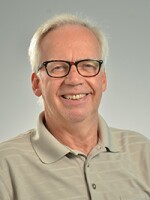There will be plenty of college football viewing choices on television this weekend. It has come a long way since Kansas City native Walter Byers engineered the NCAA’s first national television rights contract in 1952. But for all that Byers has accomplished while establishing Kansas City as the NCAA’s home base, there’s a reluctance to talk about him today at the national office in Indianapolis.
Ruffling some feathers post-retirement
Intensely private, Walter Byers sheds very little about his personal life. Except in Kansas City 18 years ago when he accepted an award at a Kansas City Sports Commission dinner. He talked about attending Bancroft grade school at 43rdand Tracy.
"I think one of the greatest privileges in my life was to grow up and be a part of this community," said Byers in his 1994 speech.
That was one of Byers’ last public appearances. He delivered a speech that not only provided a glimpse of his life outside being the most powerful figure in college athletics, Byers ruffled some feathers. Six years into his retirement after working 36 years as executive director of the NCAA, Byers attacked the same organization he molded into the force it is today.
"The management of intercollegiate athletics stays in place committed to an outmoded code of amateurism drawn, quite frankly, with many of the same words that they had drawn in 1956," said Byers.
Byers singled out 1956 because it marked the first year of full-ride athletic scholarships. Byers detailed his opinions in a book entitled, Unsportsmanlike Conduct: Exploiting College Athletes, published in 1995. Byers set the tone for the book by blaming the collegiate leaders for their lack of action toward addressing his view of exploitation.
Byers continued, "I attribute that, quite frankly, to the neo-plantation mentality that exists on the campuses of our country and in the conference offices and in the NCAA that the rewards belong to the overseers and the supervisors. What trickles down after that can go to the athletes."
Those issues he spoke about 18 years ago remain sensitive with the NCAA today.
Decades-old problems at NCAA
David Pickle, the editor of the NCAA’s in-house magazine, worked under Byers and has written about him. Pickle says from the beginning Byers dealt with the same problems that shadow the NCAA today.
"They had problems with the some of the programs in the post-war era where a number of programs were taking on athletes with some dubious inducements. They had problems with post-season football at the time," said Pickle.
Pickle spoke from the national office in Indianapolis because others, who were requested, declined to talk about Byers. Nevertheless, Byers leaves a legacy at the NCAA with a list of major accomplishments. Among them were the expansion of the basketball tournament and the establishment of an enforcement division.
"Well, I would say that Walter Byers is the individual who built modern college sports. He’s the one who had the vision at the outset of what he wanted the enterprise to be," added Pickle.
A quiet retirement in Kansas
After his retirement from the NCAA, Byers raised cattle on his ranch outside Emmett, Kansas. The cattle pens are empty after Byers, now 90, sold his herd. Byers spends his time in a simple, white house at the crest of a hill across the road from two busy Union Pacific lines.
It makes you wonder: What would Byers say today about conference realignments, the Penn State penalties and the pending major college football playoffs? We may never know.
According to Toby Gallegos, an employee who lives in the bigger house on the ranch, Byers isn’t interested in giving any interviews.






